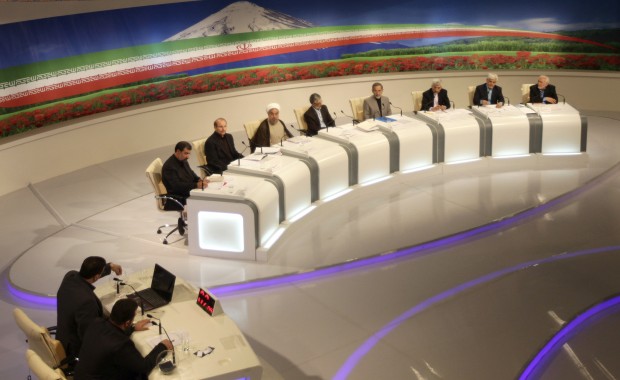To most Western nations, the presidential election in Iran on Friday looks neither free nor fair. The choice of candidates has been predetermined, no opposition figures have been allowed to run, and no media coverage will be given to any rally or statements by anyone opposing the supreme leader. Whoever wins, Iran’s political life will still be controlled by Ayatollah Ali Khamanei and the conservative clergy around him.
So does the election really matter? Does it have any democratic validity? Will it make any difference to the lives of ordinary Iranians or to Iran’s relations with the outside world? The answer, despite all the restrictions, is yes. Even in a totalitarian systems, personalities matter. The new president is unlikely to challenge the power of the clerical establishment, alter Iran’s policies in the Gulf and the Middle East, or prosecute any official for corruption if he has close links with the all-powerful Revolutionary Guards. But he will be different. And any changes he makes will affect everyone. Will these improve or worsen life for ordinary Iranians? It all depends on the victor’s personality, his ambitions, whether he is a conservative or a potential reformer, and whether he has the courage and the determination to lead Iran in a new direction.
This election is not going to be a repeat of 2009. The Guardian Council—the handpicked body of hardline loyalists—has already disqualified anyone who might represent a threat to Khamanei. They have even prevented Iran’s wily former president, Ayatollah Hashemi Rafsanjani, from standing for election, knowing that he was the only man with the political skill and reputation who could have challenged Khamanei’s dominance. The Green Movement of angry young protesters, who stirred up nationwide anger over the cheating and fraud that ensured Ahmadinejad’s re-election in 2009, has been crushed. This time, there is unlikely to be much protest at the result—largely because the clerical authorities have not indicated which of the eight candidates they want as the next president.
But the fact the election is happening at all has already raised hopes that some of the issues may now be addressed. The first, overwhelmingly, is the economy. The cost of living in Iran has gone up hugely. Fuel, food and luxuries have become very expensive. The latest American sanctions, targeting the Iranian currency, have made the rial plunge in value. Businesses are suffering, factories are having to close and Iranians have no money to travel abroad. The second issue is corruption. The Revolutionary Guards have now become an entrenched elite controlling vast sections of the economy. Members of the Guards have corruptly diverted foreign currency set aside to buy medicines and hospital supplies to their own pockets, placing orders for luxury sports cars and other goods unavailable to most Iranians. This has caused widespread fury. Any new president may soon be forced to crack down on this blatant corruption.
The third issue, which has not been publicly debated, is the war in Syria. Iranians are angry that the regime is spending so much money supporting Assad, even sending Iranian troops to Syria. The new president must decide whether Iran can afford to continue this high level of support to Damascus and to their Hezbollah allies.
Finally there is the issue of Iran’s nuclear plans and relations with the West. Khamanei has already vetoed any easing of relations with America, and has insisted Iran continue efforts to build a nuclear bomb. But the public is angered by Iran’s long isolation, and there will be new demands from millions of young people for a change in direction.
What matters is how the new president meets these challenges. Five of the original eight candidates are broadly conservative, one is a centrist, one is a reformist and the eighth, an independent, is not being taken seriously. It is hard to predict how people will vote. The turnout is expected to be high. Voters in the villages and countryside are the regime’s most loyal supporters and are likely to back a conservative. But their vote may be split between the remaining four. No one knows which of the two main figures—Muhammad Qalibaf, the mayor of Tehran, or Saeed Jalili, a nuclear strategist—is favoured by the clerical establishment and the Revolutionary Guards, the enforcers of the regime’s will.
Many Iranians, especially the middle classes and the young, think little will change. But the election has forced the candidates to address sensitive issues that have been ignored by the media. After June 14, it will be impossible to suppress these burning questions for much longer. That alone is enough to make this election important. Whoever wins on Friday, Iran will be entering a new era, and the West and the Arab world will have to reassess their policies.
